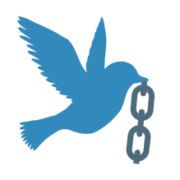 advocates
advocates
INFORMATION TO SUPPORT OTHERS
 advocates
advocates
INFORMATION TO SUPPORT OTHERS
Do you want to know how you can help prevent abuse and empower abuse survivors, even if you have not experienced abuse? We hope this website will help you understand and respond to the physical, emotional, and spiritual impact of abuse and neglect. Search the website and become familiar with the information and the resources it offers.
Let your fellow church members and your friends and family know that help exists. Advocate for protective policies for children and committed Christian care for survivors.
We are also willing to assist by answering any spiritual questions you may have or to help you find a professional who can help.
If you have any questions, please contact us.
Call 911 if you or someone you know is in crisis and needs immediate assistance.
Additional resources include:
Suggestions for those who want to say and do the right things for someone whose safety and dignity have been violated in this way.


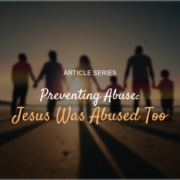
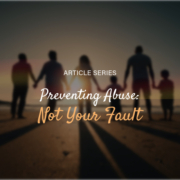
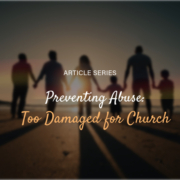
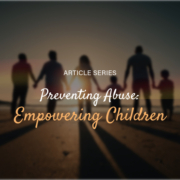
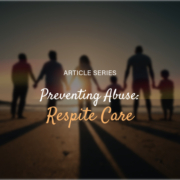
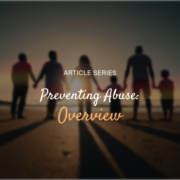



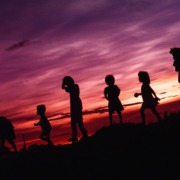
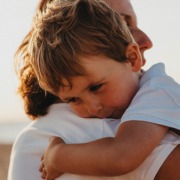
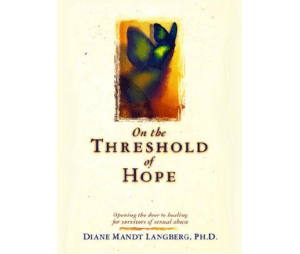
Children are abused or neglected in many ways. A child may be beaten. A child may be touched sexually or forced to touch sexually another person. A parent or other caretaker may emotionally abuse a child by telling them they are of no value or should have never been born. A child is also maltreated when a parent fails to feed or clothe a child or denies essential medical care. Children are also maltreated when they witness violence between their parents. Although child abuse laws differ from state to state, our website includes a summary of standard definitions developed by the World Health Organization and International Society on Child Abuse and Neglect.
The Centers for Disease Control and Kaiser Permanente queried 17,000 men and women to determine how many endured abuse as children. The population studied was representative of the United States population as a whole. More than one out of four women (28%) and approximately one of six men (16%) said they were sexually abused during childhood. More than one out of four (28%) said they were physically abused as children which the researchers defined as being hit hard enough to receive injuries. More than one out of ten adults said they were emotionally abused (11%) as children. Thirteen percent grew up in homes where their mothers were treated violently. With respect to neglect, 10% were denied the basic necessities of life (food, clothing, shelter, etc.) and 15% were emotionally neglected in that they grew up in homes where their parents or other caretakers never expressed affection to them.
Every ten years, the United States Department of Health conducts a massive study to determine as much information as possible about child abuse in the United States. This research has consistently found that most children are abused or neglected by their biological parents or their non-biological parent or partner. Specifically, the researchers found that 100% of neglected children, 93% of emotionally abused children, 91% of physically abused children, and 60% of sexually abused children have been victimized by their biological or non-biological parents or partners. Others who may abuse children include those who have access to children through day cares, schools, churches and other youth serving organizations.
Most abused or neglected children are violated in multiple ways. Specifically, 66% of children abused in one way are abused in at least two ways and approximately 30% of abused children are maltreated in five or more categories (physical abuse, sexual abuse, emotional abuse, neglect, witnessing violence, etc.).
This is why it is important to pay attention to all possible forms of abuse and, when working with a survivor, to keep in mind the likelihood he or she has been abused in many ways. If you would like to read more about this research, we recommend the following articles:
Heather A. Turner, David Finkelhor, and Richard Omrod, Poly-Victimization in a National Sample of Children and Youth, 38(3) American Journal of Preventive Medicine 323 (2010); David Finkelhor, Richard K. Omrod, Heather A. Turner, Poly-victimization: A Neglected Component in Child Victimization,31 Journal of Child Abuse & Neglect 7 (2007).
In a series of studies of more than 450,000 patients, the Centers for Disease Control and Kaiser Permanente found that physical abuse, sexual abuse, emotional abuse, neglect and other forms of maltreatment are associated with higher risks of numerous medical and mental health conditions including cancer, heart disease, liver disease, depression, anxiety disorders, and sleep disorders. The researchers found that the greater number of categories of abuse a patient endured, the greater the potential impact on their health.
If you or someone you know has experienced child abuse, you may want to acquaint yourself with Adverse Childhood Experience (ACE) research and to discuss this with your doctor, counselor or other professionals.
The National Center for Missing & Exploited Children has a 24 hour hotline if you believe you have seen a missing child or encounter sexually exploitive images. NCMEC also has resources that parents, churches and schools can use in teaching children online safety.
A report from the Department of Health and Human Services that provides a number of resources to respond to the risk of child abuse and neglect among children with disabilities.
It is important to recognize the differences when dealing with sexual behavior of young people:
“Recognizing and Responding to Developmentally Appropriate and Inappropriate Sexual Behaviors of Children,” by Victor I. Vieth. Currents in Theology and Mission 45:3, pages 50-55 (July 2018)
Statistical analysis and perspectives on juvenile sex offenders can also be found in the Office of Juvenile Justice & Delinquency Prevention (OJJDP) summary of research on youth who commit sexual offenses against other children.
Experts are available to help churches and schools develop effective policies for their ministry. We can provide sample policies templates and provide guidance concerning best practices. E-mail freedom@wels.net.
Godly Response to Abuse in the Christian Environment is a Christian organization of child abuse prosecutors, psychologists, and other professionals who provide training, publications, and other child abuse prevention resources to families and churches.
Lutheran Church Missouri Synod Child Abuse Resources. This website, created by a Missouri Synod (LCMS) Task Force on child abuse, contains articles, prayers, coloring books and other resources that may help churches and families in responding to the sin of child abuse.
An organization committed to preventing, healing, and eliminating all forms of sexual victimization of boys and men through support, treatment, research, education, advocacy, and activism. Male Survivor
Prevent Child Abuse America is the nation’s oldest and largest organization committed to preventing child abuse and neglect before it happens. They promote programs and resources families; churches and communities prevent child abuse and neglect.
RAINN is the nation’s largest anti-sexual violence organization. Resources include a national hotline (800.656.HOPE), resources, information, and education and training. RAINN
Standing Up for Children: A Christian Response to Child Abuse and Neglect. All churches and schools need to be safe places where leaders actively work to prevent abuse. Freedom for the Captives (FFTC) offers online training videos taught by experts Mr. Victor Vieth, director of education and research at Zero Abuse Project and Prof. John Schuetze, a seminary professor and counselor. To learn more, check our training webpage. To request the training for yourself or your group, please complete our online learning registration form.
The Search Institute has developed tools for parents and schools to use in teaching children perseverance and resilience, including a connection to faith.
The Center for Disease Control (CDC) has published a guide to assist youth-serving organizations in limiting the possibility of child abuse within an organization.
(SMART) is a United States Department of Justice program that monitors federal law on the registration of sex offenders. The SMART website has resources that can help churches or others understand registration laws in a particular state. Tags: Advocates, Ministry Leaders
Shared Hope International offers resources to assist in understanding and responding to the trafficking of children.
Zero Abuse Project (ZAP) is an organization committed to transforming institutions to effectively prevent, recognize, and respond to child sexual abuse. Zero Abuse Project offers many excellent training courses, including “Keeping Faith: Empowering the Faith Community to Recognize and Respond to Child Abuse.”